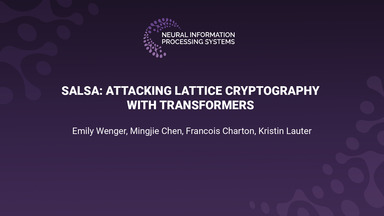Actor Prioritized Experience Replay
Dec 2, 2022
Speakers
Baturay Saglam
Speaker · 0 followers
Furkan B. Mutlu
Speaker · 0 followers
Doğan Can Çiçek
Speaker · 0 followers
Suleyman Kozat
Speaker · 0 followers
About
A widely-studied deep reinforcement learning (RL) technique known as Prioritized Experience Replay (PER) allows agents to learn from transitions sampled with non-uniform probability proportional to their temporal-difference (TD) error. Although it has been shown that PER is one of the most crucial components for the overall performance of deep RL methods in discrete action domains, many empirical studies indicate that it considerably underperforms actor-critic algorithms in continuous control. We theoretically show that actor networks cannot be effectively trained with transitions that have large TD errors. As a result, the approximate policy gradient computed under the Q-network diverges from the actual gradient computed under the optimal Q-function. Motivated by this, we introduce a new branch of improvements to PER for actor-critic methods, which also regards issues with stability and recent findings behind the poor empirical performance of the algorithm. An extensive set of experiments verifies our theoretical claims and demonstrates that the introduced method obtains substantial gains over PER.A widely-studied deep reinforcement learning (RL) technique known as Prioritized Experience Replay (PER) allows agents to learn from transitions sampled with non-uniform probability proportional to their temporal-difference (TD) error. Although it has been shown that PER is one of the most crucial components for the overall performance of deep RL methods in discrete action domains, many empirical studies indicate that it considerably underperforms actor-critic algorithms in continuous control. W…
Organizer
NeurIPS 2022
Account · 961 followers
Like the format? Trust SlidesLive to capture your next event!
Professional recording and live streaming, delivered globally.
Sharing
Recommended Videos
Presentations on similar topic, category or speaker
Run-Time Monitoring for Safe Robot Autonomy
Watch later
Total of 0 viewers voted for saving the presentation to eternal vault which is 0.0%
Urban Heat Island Detection and Causal Inference Using Convolutional Neural Networks
Watch later
Zach Calhoun, …
Total of 0 viewers voted for saving the presentation to eternal vault which is 0.0%
SALSA: Attacking Lattice Cryptography with Transformers
Watch later
Emily Wenger, …
Total of 0 viewers voted for saving the presentation to eternal vault which is 0.0%
Mean-field analysis for heavy ball methods: Dropout-stability, connectivity, and global convergence
Watch later
Diyuan Wu, …
Total of 0 viewers voted for saving the presentation to eternal vault which is 0.0%
De Novo Protein Design
Watch later
Total of 0 viewers voted for saving the presentation to eternal vault which is 0.0%
Polynomial-Time Optimal Equilibria with a Mediator in Extensive-Form Games
Watch later
Total of 0 viewers voted for saving the presentation to eternal vault which is 0.0%





